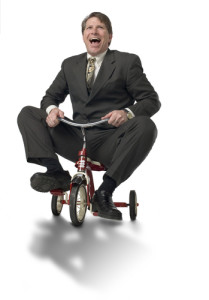 You’ve probably heard the old adage that change is the only constant in life. This is even true of your smile! With age comes wisdom, not to mention noticeable changes in your teeth and their movement. It begins with the appearance of our first baby tooth, then the loss of these teeth and replacement with permanent teeth, but it doesn’t stop there. Why are our teeth always on the move, even when we’re not? Celina, TX family dentist Dr. Newton explains.
You’ve probably heard the old adage that change is the only constant in life. This is even true of your smile! With age comes wisdom, not to mention noticeable changes in your teeth and their movement. It begins with the appearance of our first baby tooth, then the loss of these teeth and replacement with permanent teeth, but it doesn’t stop there. Why are our teeth always on the move, even when we’re not? Celina, TX family dentist Dr. Newton explains.
Factors Affecting Movement of Your Teeth
Several factors play a role in the constant movement of teeth throughout your lifetime, including:
- Genes: Along with eye color, height, and medical conditions, you can also thank your parents for the shape, size, and even the natural shade of your teeth. Teeth that are larger are more prone to crowding, which affects their tendency to shift out of place.
- Age: Over time, the shape and size of your teeth may change due to general wear and tear. This seems to affect the bottom teeth more than the top teeth, most likely because teeth on the bottom arch are naturally smaller in size; it also explains why the area surrounding the mouth may droop or sag with aging. The pressure on teeth also causes them to shift slightly over time.
- Losing teeth (or keeping them too long): The most dramatic cause of shifting is the loss of a tooth, whether primary or permanent. Before the permanent teeth erupt, they rely on primary teeth to save their spot, so to speak. If the primary tooth is knocked out or falls out prematurely, the surrounding erupted teeth may edge into this space, preventing the permanent tooth from erupting properly. Similarly, losing permanent teeth results in shifting of the surrounding teeth.
- Bruxism: Bruxism, or teeth grinding, subjects the tooth structure to enormous stress and can lead to enamel erosion, fractures, and chips. Gradually, the teeth become worn down and smaller in appearance. Teeth grinding can force your bottom teeth outward and cause upper teeth to become loose, or the teeth may change position altogether.
How Can You Cope With Traveling Teeth?
Tooth loss, the primary cause of traveling teeth, isn’t just a structural problem. Missing teeth also impact your confidence in the appearance of your smile. Fortunately, you have several options to replace lost teeth. Dental implants are the closest possible replacement for your natural teeth and are an option regardless of whether you’ve lost just one tooth, many teeth, or even all of your teeth. Unlike dentures, implants are permanent. Even so, many patients are satisfied with their partial or complete dentures, which are more budget-friendly than implants.
If your primary concern is that your teeth have changed in shape or length, you may be a candidate for either dental bonding or porcelain veneers. Bonding is more affordable, but veneers offer such advantages as a natural, tooth-like translucence and stain-resisting properties. However, the bonding procedure requires only one dental visit, whereas veneers require multiple appointments.
Problems with traveling teeth? To learn more about preventing shifting and tooth loss, or to schedule an appointment with Dr. Newton, contact our Prosper, TX dentist office at 214. 851. 0130. We welcome patients living in Celina, Prosper, Wylie, Allen, and the surrounding areas.

Recent Comments